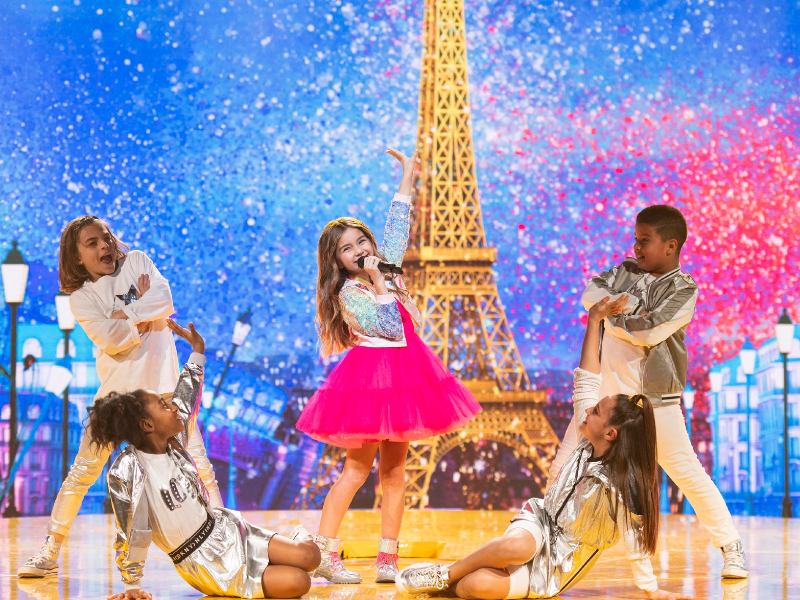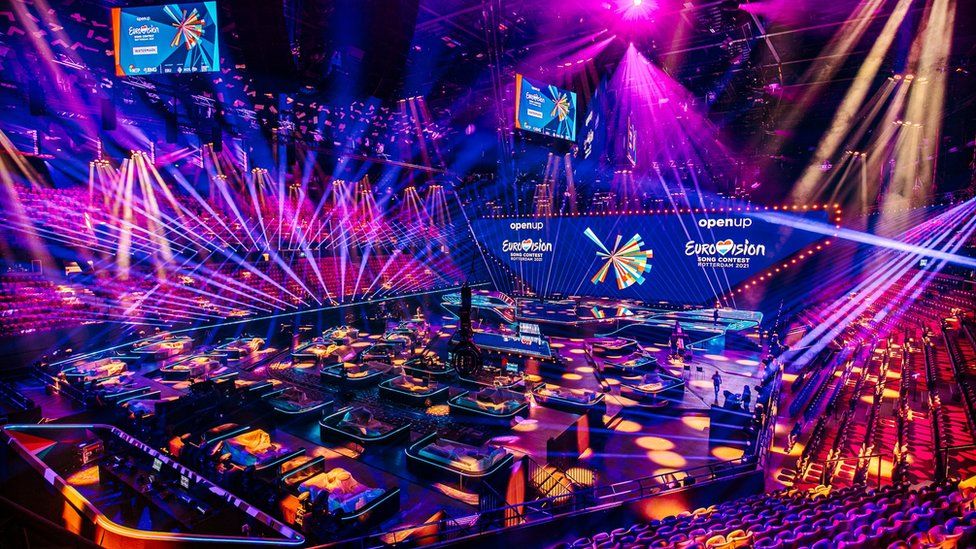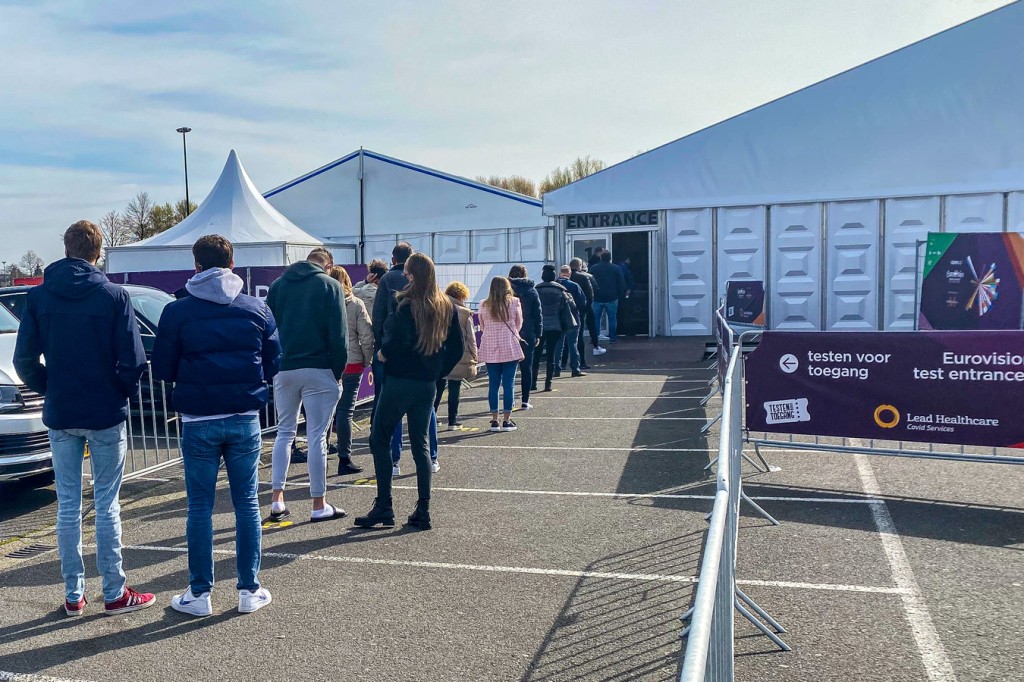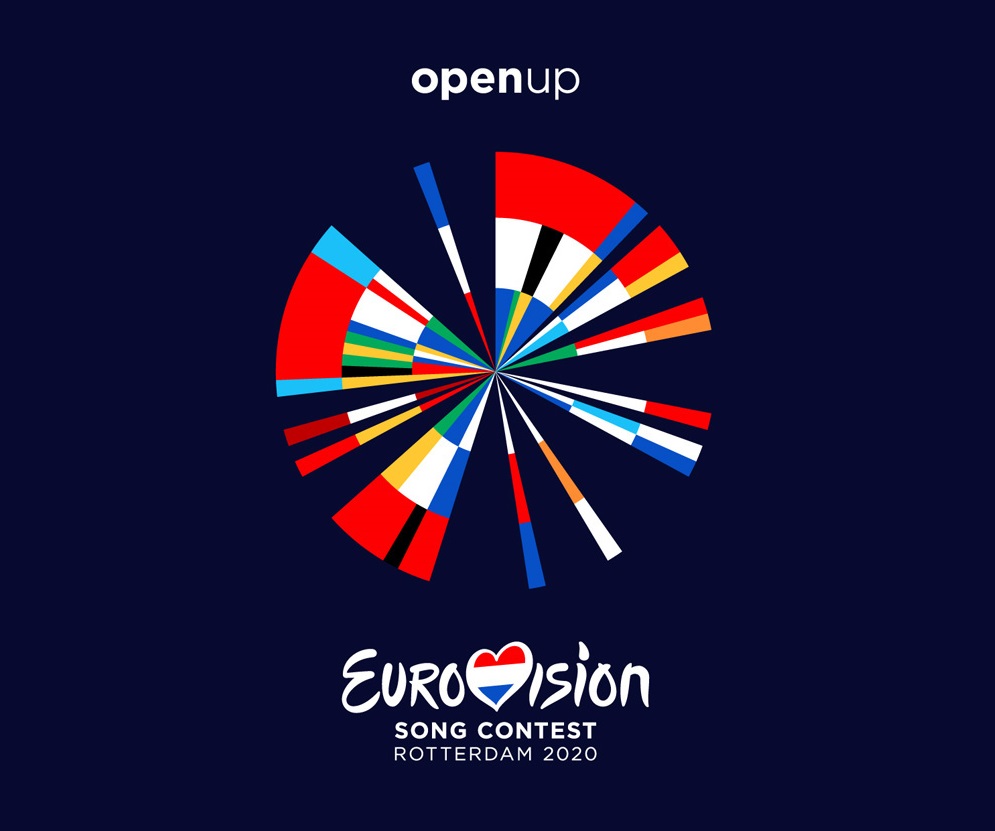In the middle of May 2021, the Eurovision Song Contest took place while the COVID pandemic was still happening. In addition, it allowed seating capacity for thousands of spectators. One would consider this to be a very dangerous move as the world is trying to recover from a world wide pandemic. Few know that this is an event to test whether it’s possible to hold a concert during a pandemic.
EUROVISION 2020 CANCELLED
2020 started like any other year. If there was COVID happening, it was half a world away and showed no real signs of crossing any borders. The Rotterdam Ahoy arena looked like it had plans to be made ready to stage the Eurovision 2020 while national TV networks were getting their performers and songs ready, whether by internal selection or by hosting national finals. Then the pandemic crossed borders. The news got more frightening every day as cases were starting to crop up from country to country. Sports events like the PGA golf series, MLB and NFL football had to cancel their seasons, the Olympics had to postpone to the following year. Then in mid-March Eurovision 2020 had to cancel because of the pandemic. That was just after all 41 competing nations had already submitted their entries and songs.
With no Song Contest happening and it being hugely complicated, if not impossible, for people to meet up, the European Broadcasting Union (EBU) decided to have all the entered songs recognized for the participation. There would still be a set of Eurovision shows during the days the Song Contest was originally intended to take place. The Tuesday and the Thursday which were originally supposed to have the semi-finals contested had the Eurovision Song Celebration which paid tribute to the songs and performers of that year and during what was to be their respective semi-final performance. Even before the Song Celebration, the Eurovision Youtube channel had the artists of 2020 perform ‘home concerts’ to keep people’s spirits up.
On the Saturday that was to have the Grand Final held, May 16, 2020, there was Eurovision: Europe Shine A Light. It was a two-hour show which paid tribute to the 41 songs and performers who were to be participating that year. A piece of the video of their song was played followed by a message of well-wishes during this pandemic from the respective entered act remotely from their home country. The show was held with a central location of Studio 21 in Hilversum instead of an arena. Past Eurovision entries gave their wishes to all during this time. There were additional performances from past Eurovision entries singing past Eurovision songs with encouraging messages like ‘Ein Bisschen Frieden,’ ‘Molitva,’ and ‘What’s Another Year.‘ Italian entry Diodato performed ‘Volare‘ live from Milan as well as showcased his song ‘Fai Rumore‘ from an empty arena in Verona. Singers of the two most recent winning songs, Israel’s Netta and the Netherlands’ Duncan Laurence, performed original songs about the frustration of loneliness one receives during the time we all have to isolate ourselves to prevent contagion. Israel’s Gali Atari performed her 1979 winning song ‘Hallelujah‘ with Dutch Junior Eurovision contestants and Junior Songfestival entries from past years. It was done as a Zoom-style ensemble. The show ended with all the 41 contestants singing a piece of the 1997 winning song ‘Love Shine A Light‘ with the song ending with all of them singing together as a Zoom-style choir with Katrina Leskanich, formerly of Katrina and the Waves, to sing the last part.
There were also two noteworthy announcements that happened during the show. The first announcement came during the part when they were with the 2019 Junior Eurovision winner Viki Gabor from Poland. From her home in Poland, she announced that the Junior Eurovision Song Contest will be taking place in Warsaw on November 29, 2020. The second announcement came from the hosts of Europe Shine A Light. It was announced that the Eurovision Song Contest will be taking place in May 2021 in Rotterdam.
CONSIDERING OPTIONS FOR EUROVISION 2021
The announcements of a Junior Eurovision in six months time and a Eurovision in a year’s time seemed like far-fetched things at the time. Nobody knew what the pandemic would be like over time. Rates were increasing at frightening rates, people were still in lockdowns and a vaccine of any kind had not been discovered. Nevertheless it was something still worth pursuing. Twelve months since the ill-fated 2020 Contest is enough time for the pandemic to either subside or for preventative measures like vaccinations to be in effect. Countries were already announcing their intention to compete in 2021. Many even announced their intended 2020 entry would be their performer for 2021. However staging the Contest would be difficult. Possible, but difficult. The EBU had four scenarios to deal with. Each of the scenarios would involve the holding of shows, presence or non-presence of performers, number of spectators, side events and the media press:
- Scenario A (normal): This would almost be as if the pandemic never happened. All shows from Ahoy Arena, all the participants in Rotterdam to perform, arena filled to 100% capacity, side events happening throughout Rotterdam the Press Centre would have all 1,500 anticipated press people on site.
- Scenario B (1.5 metre social distancing): All shows would be from Ahoy, but only performers who are COVID-negative could perform on stage. Since there would still be no guarantee that the performers would all be COVID-negative on the day of the show, they would all do taped back-up performances that would act as their Contest submission in case. Those whose country was still under lockdown because of travel restrictions could have a taped performance recorded by their network. Arena audience could be anywhere from 0% to 80%, side-events would have to be adapted virtually, and the 1500 press people would be limited to 500 on site and 1000 virtually.
- Scenario C (Travel-restrictive): All shows would still be from Ahoy and the arena would still have a capacity of spectators anywhere from 0 to 80%, but participants would all do their performances in their home country. There would still be adapted side performances, but greatly reduced and all 1,500 press people would conduct interview questions virtually.
- Scenario D (lockdown): Even with a lockdown mode, there would still be a show from Ahoy arena as there was a show from a studio during 2020’s lockdown in the Netherlands as well as most of Europe. The arena however would only be empty of spectators, consisting only of show and network personnel. There would be no side-events, performers would do their performance in their home country and again all 1,500 press people would conduct interview questions virtually.
JUNIOR EUROVISION 2020: THE FIRST TEST EVENT
Six months in between the intended Eurovision Song Contest 2020 and the Junior Eurovision Song Contest 2020 was enough time to get a good sense of how to conduct business and events during the pandemic. The 2020 Eurovision Contest couldn’t be held because everything happened all of a sudden and it was too sudden to plan an alternate for holding a Contest. However the EBU was well-aware statistics and restrictions would change by the time Junior Eurovision, the song contest for performers aged 9 to 14, would come around on November 29, 2020. Some would be for the better, some worse. It was decided that the Junior Eurovision would be held in a situation close to that of Scenario D. I will get to the specifics in the next three paragraphs.

Over time, seven nations that competed at the 2019 JESC such as Australia, Italy, North Macedonia, Ireland and Portugal would not participate because of the COVID situations in their country. Armenia intended to compete, but the Nagorno-Karabakh conflict that happened a month before Junior Eurovision was about to start led to their withdrawal. In the end, twelve countries, the lowest since 2013, chose to compete. Germany was one country that would make their Junior Eurovision debut. The Contest organizers were sensitive to the pandemic and announced that the Contest would be restricted to studio performances. They gave two options where the performers could do their performances in Warsaw in the studio of the host network TVP (Telewisja Polska) or in the studio of their respective nation’s network. I believe it was a case of three performances could be done and the best of the three was chosen as the performance for the competition. Only performers from four nations — Poland, Malta, Ukraine and Serbia — were willing to do their performances in Warsaw. Performers form the other eight countries stuck to doing their performances in the studio of their respective nation’s network. Also performances and parts from the Common Song — a song performed by each nation’s singing entries as an ensemble onstage — had to be recorded from whichever studio they performed at beforehand.
Junior Eurovision 2020 was finally held on November 29 inside the TVP headquarters in Warsaw. There was an audience but it was restricted to network organizers and their families. The show began with a performance from last year’s winner Viki Gabor performing her winning song from that year: ‘Superheroes.’ Back-up dancers were present during the performance. For the remainder of the show, the chosen performances from the studios were the competitive performances the juries judged on and the home audiences would vote for online. Instead of the Green Room where the competing performers would normally sit, drink and mingle in, the performers and their assistants were in a special room in their respective network studio. It was also live broadcast from the room where interviews were conducted and their reactions to the scoring would take place.
For the Interval Acts after all the competitive performances were shown and viewers voted, the Common Song was shown as if all the performers gathered together as one. It was actually created through hologram technology. Another hologram performance was the performance of the 2019 Eurovision-winning song ‘Arcade’ by winner Duncan Laurence and Poland’s two Junior Eurovision winners Viki Gabor and Roksana Wegiel. Viki and Roksana performed together, but Laurence’s part was done in an NPO Zapp studio in the Netherlands. The winning song — “J’Imagine” by singer Valentina from France — was a song whose submitted performance was taped one month earlier in a France 2 studio in Paris. There was not the usual Winner’s Reprise where the act of the winning song traditionally goes back on stage, accepts the award and gives and encore performance of their winning song. Instead Valentina and her team celebrated in the France 2 studio and a replay of the submitted competitive performance was done instead of the Winner’s Reprise.
EUROVISION 2021 PLANNING
In all honesty, that year’s Junior Eurovision did feel like a constricted event with all the performers limited to taped performances in a studio, hologram performances of most interval acts, and studio rooms instead of a green room. It didn’t have the same look and feel as if the performers were performing in from of a live audience full of excitement or the same celebratory feel of the performers all getting together in the Green Room having their post-performance fun. What it did do is that it showed that a Eurovision contest was possible. It would be very limited but very possible. Also on an optimistic note, that year’s Junior Eurovision’s online voting had the most online votes totalling 4,500,000! That showed the pandemic can’t stop the Eurovision excitement. For the organizers of Eurovision 2021, this Contest served as an example on how to do a Eurovision if it does come down to a Scenario D situation. Of course they would want to do the Contest with a bigger stage, as many performances on that stage as possible, and with a live audience full of excitement. It would be dependent on time and the situation involving the pandemic as they got closer and closer to Contest time. This would be dependent on statistics of numbers of cases, possible other COVID variants and their effects, the potential for vaccines to be distributed, the efficiency of testing, and the latest studies in COVID prevention.
As time passed, it was announced all 41 nations that entered in the 2020 Contest intended to participate in the 2021 Contest. Many nations intended to enter their entry from 2020 into the 2021, but a new song had to be created in order to keep within the rules. Some nations stuck to having their usual national contests to have the performer and song selected, but said their respective 2020 entry can participate without having to audition. As for the pandemic, there would be a lot of changes over time in terms of the pandemic. The statistics would yield differing results, but vaccinations would also begin to take place en masse in the countries and many travel restrictions would be lifted. This would allow for the ability for performers to travel to the Netherlands to perform and even foreign visitors to come. The one thing the vaccinations and eased restrictions did not do over the time is decrease the potential contagion of COVID significantly nor the disease’s effects on those that caught it. The organizers in the end decided to do the Contest via Scenario B. There would be live performances for all six live rehearsals and three live shows, and the Dutch Cabinet approved a live performance one month before the Contest. Concert crowds would be a limited number and there would be no spectators standing on the arena floor level. More details on the concert crowds in the Handling Of Ticket Holders section. Side events would be impacted such as the ‘Turquoise Carpet’ being the only in-person side-event to take place normally, the Opening Ceremony not held, the Eurovision Village to be held only as an online event and the EuroClub cancelled completely.

Safety Measures For Performers
None of the nations from 2020 that intended to compete in 2021 cancelled out because of COVID-related reasons, but two nations did withdraw. Armenia withdrew because of political unrest from after the Nagorno-Karabakh conflict and Belarus withdrew because their entry for this year had a political message, which is against the EBU rules for the Contest, and would not submit a replacement song. Thirty-nine nations did compete in the Contest. Twenty-six of those nations had the act that was intended for the 2020 Contest as their entry for 2021.
The COVID pandemic was just as real of a threat in the performers’ home countries as it was if they were in Rotterdam. The EBU knew this. They were still aiming for live performances for rehearsals, jury performances and live Contest performances. They still wanted to make sure the performers didn’t endanger themselves or others. In addition, not all travel restrictions had been lifted for the participating countries. The EBU gave the entries the obligation to record back-up performances on video for in case they could not perform their song live on stage whether it be the semifinal, final, or even rehearsals because of travel restrictions. Rules for back-up performances were the artists were each given an hour and during that hour, they were allowed to give three performances of their song. At the end of taping, the delegation would decide which one of the three performances they were most satisfied of. The choice would be the entry’s official back-up submission.
There was also the possibility that some performers would test negative while in their home country, but end up testing positive or being a high-risk group any time while they were in Rotterdam. It could happen anytime, whether it be after the first rehearsal, but before the jury performance or even the live performances. Performers had the option to use their best rehearsal performance or even a jury performance, whichever they were happiest with, as their back-up performance for the Contest. There could even be stand-ins for the rehearsals should one test positive and have to sit the rehearsals or performances out. There were times when these regulations for this year’s Contest were very helpful for all thirty-nine to have a performance worthy of submission for the Contest:
- Australia was still unter travel restrictions. Montaigne could not travel to Rotterdam to do her performance of her song ‘Technicolor‘ so the chosen back-up performance acted as the entered song. Audiences both in the arena and through television would see the performance on the LED.
- Kateryna Pavlenko, lead singer of the Ukrainian band Go_A, reported feeling ill before the performance of their song ‘Shum’ for the second rehearsal just before the first semifinal. Rules were that anyone reporting feeling ill before performing no matter what had to miss because of a precaution. All other band members tested negative for COVID-19. The band continued with their performance as a Dutch singer, Emmie van Stijn, acted as the stand-in. Pavlenko soon after took a COVID test and the results were negative. Pavlenko was able to continue performing for the remainder of the competition. The band was so impressed with van Stijn’s singing and diction of the Ukrainian language, they had her sit with them in the Green Room during the semifinal as a thank-you!
- All six members of the Icelandic entry Daði og Gagnamagnið were COVID-negative when they arrived in Rotterdam. Their performance of their song ’10 Years’ went as normal during the first and second rehearsals. However one of the members tested positive for COVID. They had a rule that they would all perform as a band on the Eurovision stage. They opted to miss out from further performances. Their performance from the second rehearsal was their chosen submission for the jury performances and live shows.
- 2019 winner Duncan Laurence was slated to reprise his winning song ‘Arcade‘ and perform his new song ‘Stars‘ as part of the interval act of the Grand Final. Laurence opened the first semifinal with the song ‘Feel Something,’ but tested positive for COVID shortly after. Duncan had to miss performing live in the Grand Final, but he did deliver a message of well-wishes on the LED screen and pre-recorded performances of ‘Arcade‘ and ‘Stars‘ were used instead.
Handling Of Ticket Holders And Rapid Testing
It was decided by Dutch Parliament in less than three weeks before the start of the Contest that the event would be open to spectators. Organizers set the limit to the number of performances accessible to public audiences to be nine: all jury shows, family shows and live shows of the two semi-finals and Grand Final. The number of spectators per show was set to a limit of 3,500. Now I know a lot of people would be freaking out over live crowds occurring during a pandemic, but there were rules and regulations regarding spectators for the Contest. In fact the Contest was a pilot event event under FieldLab Concerts. Rules included:

- High-risk groups as defined by the Netherlands’ National Institute for Public Health and the Environment (such as those 70 years or older) cannot purchase tickets.
- Those attending the events couldn’t just simply purchase tickets. All sold tickets had to be personalized and registered. Meaning only the specific person is allowed to use the ticket. There are to be no ticket exchanges. Part of the personalization includes ticketholders to download the Close app and CoronaCheck app.
- Just after purchasing the ticket, the Eurovision Contest Shop will bring ticketholders to a webpage to personalize the tickets. The ticket will be accessible for the Close app.
- Ticketholders will need to take COVID tests the day of the ticketed event. Maximum 24 hours before the event’s anticipated end. Showing a card that confirms COVID vaccination is not enough. Appointments for COVID testing would have to be made through the Dutch ‘Testen Voor Toegang’ website which assists in setting appointments for rapid COVID testing throughout the Netherlands. Even attendees coming from other countries will have to be tested in the Netherlands. Test results can be made available as soon as an hour after they’re taken. Tests done through Testen Voor Toegang appointments are the only valid COVID tests for the Contest.
- Results of the COVID test will be made available through the CoronaCheck app. Those that test negative are allowed to attend their ticketed event. Those that test positive are not allowed and they do not receive a refund.
- All spectators who test negative can’t simply arrive at the Ahoy Arena anytime. In their Close app, they are given an entrance time-slot for them to show up at the entrance to their ticketed event and do their airport-style security check.
- At their entrance, they are required to show both their ticket and their negative COVID test result in order to be admitted.
- As far as face masks go, attendees are allowed to take off their face masks when they’re inside the actual arena seating. Spectators are allowed to eat and drink inside the arena seating.
- Spectators will have to put their face masks back on once they leave the arena seating area. That includes in areas of the Ahoy Arena such as concession lobbies or the washrooms. Arena seating is the only mask-free area for Contest spectators.
- Once spectators are outside the Ahoy Arena building, all mask-wearing regulations made by the Dutch government apply.
Also worth taking note is that all spectators had to be in seated areas. In fact the Green Room took up the whole arena floor area outside of the stage to ensure no spectators on floor level and the performers’ own social distancing. This is arguably the first big event with large spectators to be held during the pandemic so it’s obvious strict regulations would be required. Since the Contest has been completed, there has been no news of massive positive tests from spectator attendance. It so far has proven to be an excellent success, if not a flawless success, that a concert can still take place during the latter period of a pandemic and make progress to more back-to-live performances. Even spokespeople throughout the Contest were speaking their delight and approval of the Contest getting back to live performances and celebrative spirits. Also for those who want to know who the winner is, but don’t know, it’s Italy’s glam-rock band Måneskin who won with the song ‘Zitti e Buoni.’
This year’s Eurovision Song Cotest proved that live performances with spectators can happen during a time of a pandemic. Measures in terms of ticket holders and performers had to be strict and within government regulations, but it all turned out to be successful in the end.
WORKS CITED
WIKIPEDIA: Eurovision Song Contest 2020. Wikipedia.com. 2021. Wikimedia Foundation Inc. <https://en.wikipedia.org/wiki/Eurovision_Song_Contest_2020>
WIKIPEDIA: Eurovision: Europe Shine A Light. Wikipedia.com. 2021. Wikimedia Foundation Inc. <https://en.wikipedia.org/wiki/Eurovision:_Europe_Shine_a_Light>
WIKIPEDIA: Junior Eurovision Song Contest 2020. Wikipedia.com. 2021. Wikimedia Foundation Inc. <https://en.wikipedia.org/wiki/Junior_Eurovision_Song_Contest_2020>
WIKIPEDIA: Eurovision Song Contest 2021. Wikipedia.com. 2021. Wikimedia Foundation Inc. <https://en.wikipedia.org/wiki/Eurovision_Song_Contest_2021>
Tickets For Eurovision. EBU 2002-2021. Website by SCRN. <https://eurovision.tv/tickets>
